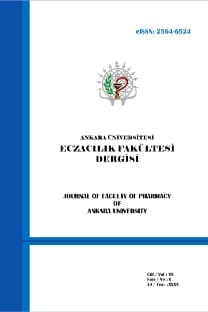An overview of ascorbic acid biochemistry
Askorbik asit, suda çözünen çoklu biyolojik fonksiyonları olan bir mikrobesindir. Kollajen hidroksilasyonu, karnitin biyosentezi, dopaminin norepinefrine çevrimi, peptid amidasyonu ve tirozin metabolizmasına katılan çeşitli enzimler için bir kofaktördür. Ayrıca vitamin C demir alımında önemli bir regülatördür, ferrik demiri ferro formuna redükler ve böylece gastrointestinal sistemden diyet nonhem demir absorbsiyonunu sağlar ve demir bağlı proteinleri stabilize eder. Birçok hayvan glukozdan vitamin C sentezleyebilir fakat insanlar, diğer primatlar, kobay ve yarasalarda vitamin C sentezinde gerekli olan gulonolakton oksidaz enzimi eksik olduğundan diyetlerinde bu vitamine gereksinim gösterirler. Nitekim uzun süreli askorbik asit yokluğu kollajenin post-translasyonel modifikasyonunda defekte neden olup skorbüte ve sonunda ölüme yol açabilir. Antiskorbutik etkisine ilaveten vitamin C biyolojik sistemlerde potent bir redükleyici ajan ve serbest radikal temizleyicisidir
AN OVERVIEW OF ASCORBIC ACID BIOCHEMISTRY
Ascorbic acid (vitamin C) is a water-soluble micronutrient required for multiple biological functions. Ascorbic acid is a cofactor for several enzymes participating in the post-translational hydroxylation of collagen, in the biosynthesis of carnitine, in the conversion of the neurotransmitter dopamine to norepinephrine, in peptide amidation and in tyrosine metabolism. In addition, vitamin C is an important regulator of iron uptake, It reduces ferric Fe3+ to ferrous Fe2+ ions, thus promoting dietary non-haem iron absorption from the gastrointestinal tract, and stabilizes iron-binding proteins. Most animals are able to synthesise vitamin C from glucose, but humans, other primates, guinea pigs and fruit bats lack the last enzyme involved in the synthesis of vitamin C (gulonolactone oxidase) and so require the presence of the vitamin in their diet. Thus the prolonged deprivation of vitamin C generates defects in the post-translational modification of collagen that cause scurvy and eventually death. In addition to its antiscorbutic action, vitamin C is a potent reducing agent and scavenger of free radicals in biological systems
